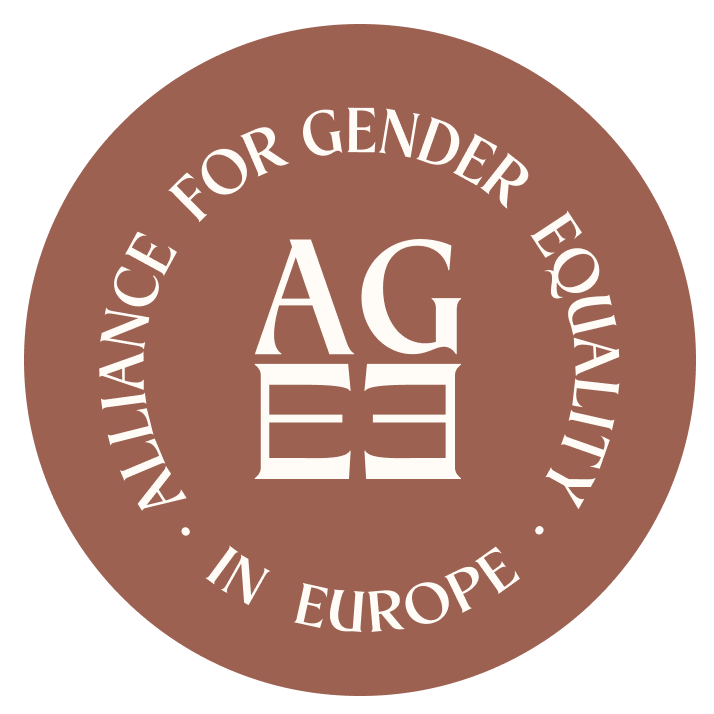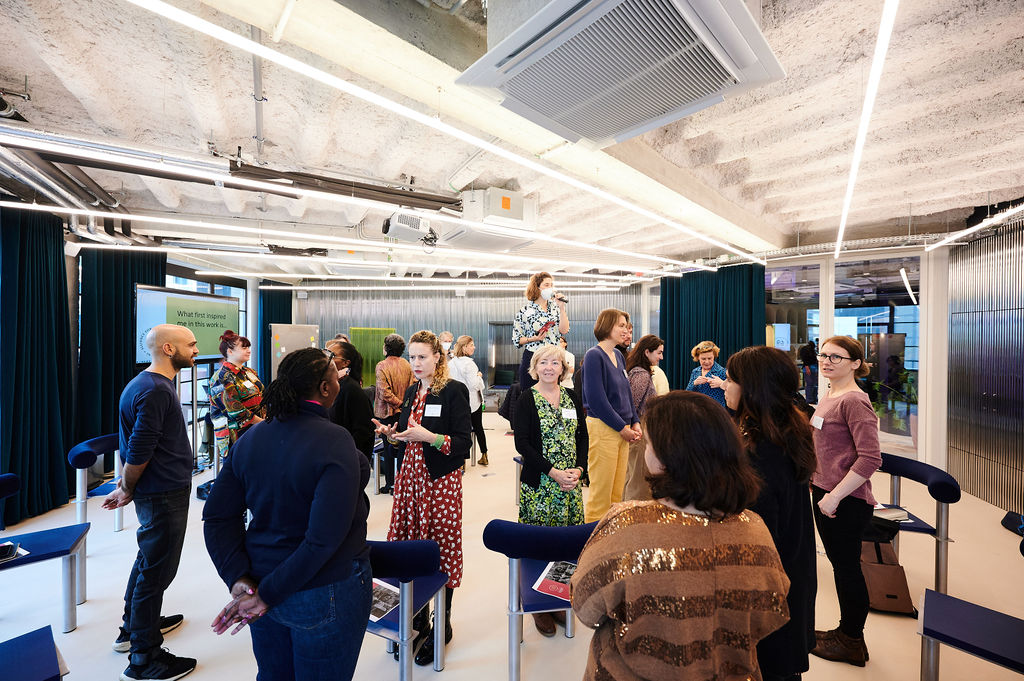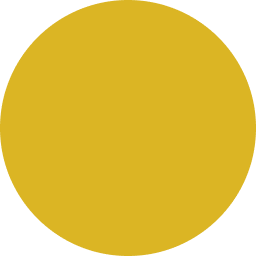By Karen Weisblatt, consultant to the Alliance
Context
Violence against women (VAW) is one of the most severe forms of gender inequality, underscoring the unequal distribution of power between men and women. Protecting victims and eradicating gender-based violence (GBV) is an important aim of the European Union, as well as part of the UN’s Strategic Development Goals[1], paving the way for a more open and inclusive democratic society.
Yet VAW remains pervasive throughout the EU. According to a 2022 EC report, one in three women has experienced some sort of violence, and one in two has been sexually harassed[2]. Online violence is also on the rise, with one in two young women experiencing gender-based cyber violence[3]. Compounding the situation is the impact of the COVID crisis, which has had a disproportionate effect on women’s physical, social and economic health and freedom. In its 2021 Gender Equality Index, the European Institute for Gender Equality (EIGE) warned that recent progress might be wiped out as a mid-term consequence of the pandemic. Another 2021 EIGE study estimated that VAW costs the EU €289 billion a year[4]. More recently, Russia’s invasion of Ukraine has displaced more than 6.5 million refugees, mostly women. According to UN Women[5], the gendered consequences of this conflict are multiple and include conflict-related sexual violence and increased risks of vulnerability during migration journeys.
Combatting VAW and Promoting Mental and Physical Health
In its first year of operation, the Alliance is supporting six grantees working in this field: two from Belgium and one each from France, Germany, Greece, and Italy. Funding has gone towards direct services, awareness-raising and advocacy; migration and asylum assistance, amongst other activities. The Alliance’s gender approach incorporates a focus on intersectionality, conscious that groups like migrant women face multiple discriminations, and these concerns are reflected in the grantees’ work.
Direct services, awareness-raising and advocacy
In the face of rising violence, both digital and physical, grantees are empowering women through a broad range of activities, such as enhanced online strategies, self-defence classes, and support groups, whose effects are multiplied through various dissemination channels. In addition, they are finding creative ways to raise awareness about the severity of the problem, both within vulnerable populations and with the wider public.
Chayn Italia is a feminist platform that fights gender-based violence (GBV) with a focus on tech-enabled abuse. Although such abuse is systemic in Italy, online violence is rarely tackled by the government due to a lack of access to digital tools and the pervasive belief that online and in-person behaviour are totally separate. Claudia Fratangelli of Chayn Italia pointed out, “In 2020, we were one of the top ten countries worldwide in terms of stalkerware usage. This is a sort of software whose sole purpose is to monitor and track everything a phone owner does, reading emails and text messages, inspecting the device’s web searches, tracking the phone’s location, and anything in between. There still is not a lot of data on this and it is very troubling.”
The Alliance’s grant allowed Chayn Italia to update its training materials on the dangers of such stalkerware, as well as abuses in social media and the non-consensual sharing of intimate images. The organisation was able to provide training to 75 frontline workers from anti-violence centres from all over Italy and is creating a communications campaign that will feature animated videos to raise awareness and reach a broader audience. ”People are starting to understand that this is a problem,” Fratangelli said. “It is the beginning of a conversation. Knowledge about this issue is the key to making progress. The more we can talk about it, the better we can fight it.”
It is the beginning of a conversation. Knowledge about this issue is the key to making progress. The more we can talk about it, the better we can fight it.
Claudia Fratangelli, CHAYN Italia
Alliance grantees are also working to offer women, particularly the most vulnerable, ways to protect themselves physically. Based in Belgium, Garance works on the prevention of GBV through self-defence and other activities which reinforce the empowerment and agency of women, children and LGBTIQ+ people. They have recently resumed a series of self-defence workshops for women with physical, sensorial and learning disabilities, which were cancelled during the pandemic due to added health risks.
Irene Zeilinger of Garance said, ” Covid set us back considerably in terms of the provision of services. People are struggling to build back. In Belgium, additional funds were made available for hotlines and hotel rooms to house women. These funds remain in place, which is of course positive. But for prevention, there was no additional support. We had to invent a whole new approach due to the circumstances.”
Covid set us back considerably in terms of the provision of services. People are struggling to build back. In Belgium, additional funds were made available for hotlines and hotel rooms to house women. These funds remain in place, which is of course positive. But for prevention, there was no additional support. We had to invent a whole new approach due to the circumstances.
Irene Zeilinger, Garance
For Garance, the primary goal is to reduce the number of victims of violence, and teaching self-defence from a feminist perspective is one of the most effective, empowering and cost-efficient ways of doing so. “It lessens the need for fear avoidance strategies which limit women’s freedom and ability to fully participate in society,” Zeilinger said. In the future, Garance plans to offer more trainings and participate in events and conferences organised for and by disabled women.
For those suffering from the traumatic effects of violence, having a safe space for self-expression is vital. Women Safe & Children have created holistic support centres in France providing health, legal, psychological, social and economic help for women and children victims of violence. It has successfully coordinated speaking circles so survivors of rape and violence can recount their stories and offer mutual support. They are developing spin-off structures in geographic areas where services are rare, such as Corsica and Guadeloupe.
In Greece, the organisation Liminal promotes inclusion and equal access to arts and culture with a focus on accessibility services, inclusive education, and production. Through their work, they became aware of the fact that women in the disability community have little knowledge of GBV or how to protect themselves—despite being highly exposed to violence. In response, they collaborated with the DIOTIMA centre for gender rights and equality to help this underserved community learn about available resources. “This project is moving us beyond our comfort zone into a fruitful collaboration,” Liminal’s Christos Papamichael said.“We are involving people from the disability community themselves. It is an important issue, and we are working on breaking down a taboo.”
We are involving people from the disability community themselves. It is an important issue, and we are working on breaking down a taboo.
Christos Papamichael, Liminal
Liminal is preparing a communications campaign with a mini-website and a 40-minute documentary film accessible to people with sensory disabilities. Papamichael continued, “In our film, one woman speaks openly about her experience with VAW through this lens. Now women with sensory disabilities will have a place to find concrete knowledge of how to react, how to create an escape plan, and more. Our goal is to provide pragmatic tools to allow people to be independent and live in dignity.”
Migration and asylum assistance
The Ukrainian crisis has put an enormous strain on the asylum process in Europe, at times overwhelming public services. Cognisant that women migrants and refugees are particularly at risk of violence and discrimination during this time, grantees are working both in direct services and on legal protection and analysis in order to improve their chances for successful outcomes.
International Women* Space (IWS) is a grassroots intersectional feminist, anti-racist, self-led organisation in Berlin documenting everyday forms of racism, sexism and discrimination. It provides migrant and refugee women with peer-to-peer support, self-advocacy, and community building. As newly arrived refugees take precedence in government services, increasing wait times for other asylum seekers, many of whom are women of colour, IWS is guiding these women and their families through the sometimes-traumatic asylum process. Its Break Isolation Group (BIG) is led by a team of core activists who are themselves asylum seekers living in different shared homes. This peer-to-peer approach has allowed the organisation to foster a well-informed community of asylum seekers who can learn from those who have already gone through the experience. As community organiser Lucy Ng’ang’a said, “If you are an asylum seeker and you have the right information, you can make good decisions and have a more positive impact on society. We want to encourage this kind of mutual support so that women can find their own way of living in society.“
If you are an asylum seeker and you have the right information, you can make good decisions and have a more positive impact on society. We want to encourage this kind of mutual support so that women can find their own way of living in society.
Lucy Ng’ang’a, International Women* Space
The Alliance grant has allowed IWS to stabilize the activities of BIG and add a new component with a specific focus: helping migrant and refugee women become more self-sufficient and empowered through the creation of “mini-projects” where they develop new business strategies and showcase the skills they acquired before coming to Germany. Around ten individual projects emphasizing wellness have been implemented, involving such activities as opening a soup kitchen, making natural hair butter and hair braiding, baking and pastry-making, and organising a multicultural festival. These are projects initiated by the participants themselves, allowing them to enhance their leadership abilities, tap into their potential and maximise opportunities to collaborate. After the first implementation phase, the hope is to turn these small projects into larger grassroots women-led social enterprises. For BIG, one of the most important aspects of this work is how it helps women build their confidence. “The asylum process is very difficult, and it negatively impacts people’s self-esteem. We try and turn this around,” Ng’ang’a said. “And by providing information about VAW, we also boost awareness which is key to helping with prevention.”
Legal assistance for refugees is also a critical need all over Europe. In Belgium, the NGO Nansen, an implementation partner of the UN High Commissioner for Refugees (UNHCR), offers expertise to the most vulnerable, who often do not get a fair chance during the asylum process.“Our organisation works across the country, and we take an interdisciplinary approach which is unique, going beyond traditional legal assistance,” Nansen staff member Julie Lejeune said. “We are responding to a great need in a vastly changing context: funding for asylum assistance procedures has been reduced despite the fact that this is precisely where there is very substantial inequality. This is our niche.“
We are responding to a great need in a vastly changing context: funding for asylum assistance procedures has been reduced despite the fact that this is precisely where there is very substantial inequality. This is our niche.
Julie Lejeune, NANSEN
The organisation works on individual cases where gender plays an important role and is also putting into place a training module to sensitise judges to the specific procedural needs of victims of GBV in the Belgian asylum process. It is also wrote a set of recommendations for the Convention on the Elimination of All Forms of Discrimination Against Women (CEDAW)[6], frequently referred to as the international bill of rights for women, a key international agreement that guides the work of UN Women in achieving gender equality and empowering all women and girls.
Moving Forward
Despite these positive steps, much more still needs to be done to address the problem of VAW in Europe. An Alliance grantee explained, “Think about comparing VAW to traffic accidents. We created laws to mandate wearing seatbelts to protect people. Why can’t we do the same thing for VAW? In the EU, we changed the laws regarding tobacco, and within a decade, by making access more difficult and expensive, we changed the mentality. It is possible to change mentalities on this issue as well, which can lead to a change in behaviours. But it requires a concerted effort.”
In the future,The Alliance is looking to deepen and broaden its commitment to supporting progress for gender equality and women’s rights in Europe. Indeed, as this first year has shown, grantees are making a real difference in the lives of women and girls, finding tangible and creative solutions to the critical social, economic and health issues facing them. Whether through trainings, direct services, awareness-raising or advocacy, these organisations are on the frontlines making strides toward ending violence against women in Europe. As one grantee expressed, “I am very optimistic. When you empower women, you empower a whole community.”
[1] See : https://ec.europa.eu/commission/presscorner/detail/en/ip_22_1533 and https://www.unwomen.org/en/news/in-focus/women-and-the-sdgs.
[2] See: https://ec.europa.eu/info/files/2022-report-gender-equality-eu_en
[3] Ibid.
[4] See: Gender equality index 2021, European Institute for Gender Equality, 28 October 2021 and https://eige.europa.eu/gender-based-violence/costs-of-gender-based-violence-in-eu
[5] Rapid gender analysis of Ukraine, UN Women & Care, 4 May 2022
[6] See: https://www.unwomen.org/en/digital-library/publications/2016/12/cedaw-for-youth


